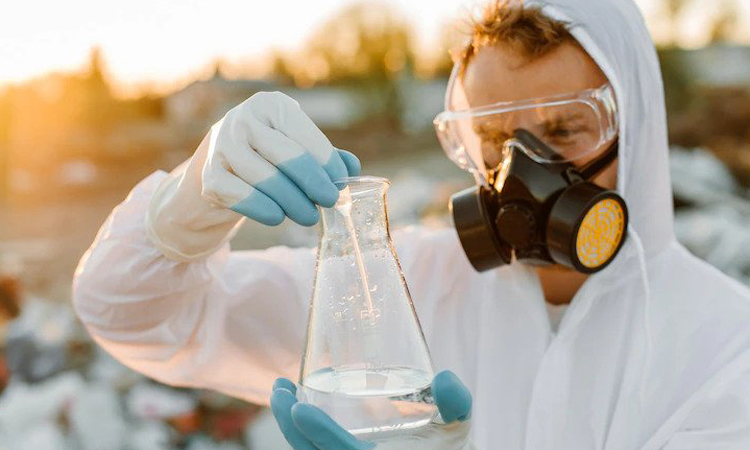
Toxicology is a scientific discipline, overlapping with biology, chemistry, pharmacology, and medicine, that involves the study of the adverse effects of chemical substances on living organisms and the practice of diagnosing and treating exposures to toxins and toxicants. The relationship between dose and its effects on the exposed organism is of high significance in toxicology. Factors that influence chemical toxicity include the dosage, duration of exposure (whether it is acute or chronic), route of exposure, species, age, sex, and environment. Toxicologists are experts on poisons and poisoning. There is a movement for evidence-based toxicology as part of the larger movement towards evidence-based practices. Toxicology is currently contributing to the field of cancer research, since some toxins can be used as drugs for killing tumor cells. One prime example of this is ribosome-inactivating proteins, tested in the treatment of leukemia.
Medical toxicology is the discipline that requires physician status (MD or DO degree plus specialty education and experience).
Clinical toxicology is the discipline that can be practiced not only by physicians but also other health professionals with a master's degree in clinical toxicology: physician extenders (physician assistants, nurse practitioners), nurses, pharmacists, and allied health professionals.
Forensic toxicology is the discipline that makes use of toxicology and other disciplines such as analytical chemistry, pharmacology and clinical chemistry to aid medical or legal investigation of death, poisoning, and drug use. The primary concern for forensic toxicology is not the legal outcome of the toxicological investigation or the technology utilized, but rather the obtainment and interpretation of results.[36]
Computational toxicology is a discipline that develops mathematical and computer-based models to better understand and predict adverse health effects caused by chemicals, such as environmental pollutants and pharmaceuticals.Within the Toxicology in the 21st Century project,[38][39] the best predictive models were identified to be Deep Neural Networks, Random Forest, and Support Vector Machines, which can reach the performance of in vitro experiments.
